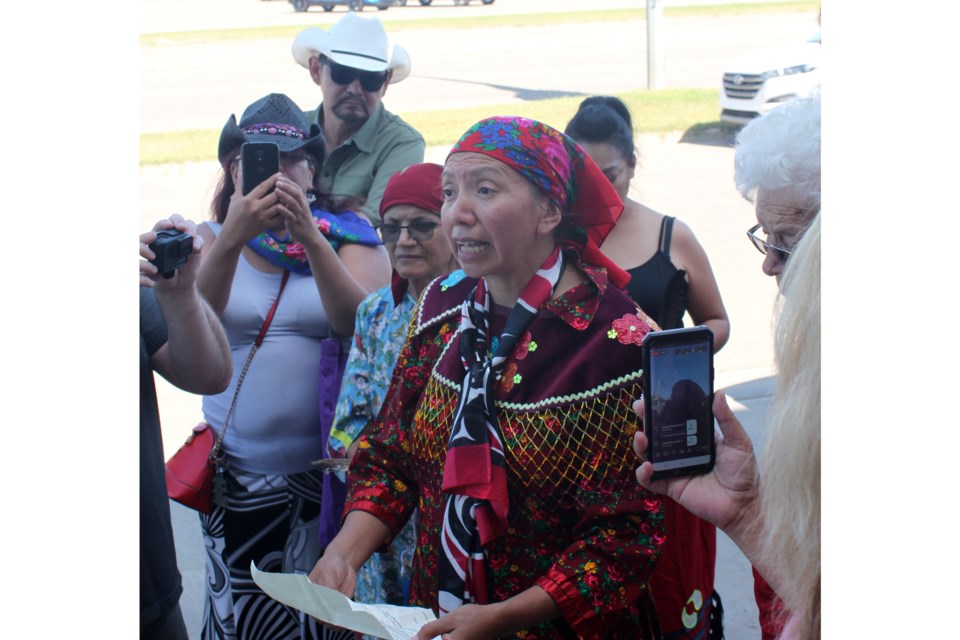Anita Large was informed by the provincial registry office July 31 that in order to transfer a driver’s license from one province to another, a Secure Certificate of Indian Status (SCIS) was required, something which she had not yet obtained. When she was told her laminated band issued Certificate of Indian Status (CIS) card was not an acceptable form of identification for the particular service she was seeking, Large challenged the registry office but was told they were simply following Service Alberta regulations and their hands were tied.
Large, who recently returned to her home at Saddle Lake after living for many years in B.C., said she explained to the registry clerk at the time that she has been unable to obtain the SCIS due to COVID-19 and resulting reduced services through the federal department.
The provincial department backed the registry office up, confirming to Lakeland Today the registry clerk was adhering to Alberta’s motor vehicle policy, which is in line with the federal transport policy.
But at the federal level, it appears there is a somewhat different message.
An Indigenous Services Canada spokesperson stated that in light of potential delays due to the COVID –19 pandemic, “We have been clear - during this time, service providers should accept both types of status cards or Temporary Confirmation of Registration Documents (TCRDs), even if the renewal or expiry date has passed. Indigenous Services Canada has sent this information to Indigenous leaders and service providers across the country and has posted information on social media.”
Rola Tfaili noted there are two types of Indian Status Cards issued by the Canadian government. The SCIS is issued centrally by the federal department to confirm registration under the Indian Act. It resembles a driver’s license with a photograph on the front, a signature and a number of security features including a machine-readable zone to facilitate Canada-U.S. border crossing. Meanwhile, the CIS card is still issued in some band offices on behalf of Indigenous Services Canada. These laminated cards have a limited number of security features.
“Both types of cards are currently valid proof of Indian Status. Both types of status cards have a renewal date -much like other forms of government identification. However, it is important to note that Indian status does not expire nor need to be renewed. The registration number confirms Indian status and can be used to access some services and programs.”
But apparently not all services in Alberta - as appears to be the case in Large’s experience where she was attempting to use the CIS card as a proof of identification.
“While we cannot comment on specific cases, or on other government agencies’ policies, we do encourage individuals who have questions or concerns about their status card, as well as service providers, organizations and businesses who have questions or concerns about status cards, to contact us directly,” Tfaili stated.
Large stated last week the “the story isn’t over,” and expressed her resolve to seeing both levels of government working together to resolve the issue.



